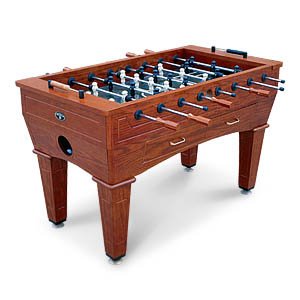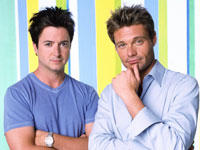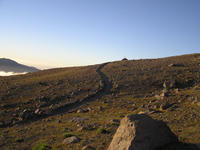I sleep. I sleep in the car on the way to the trail. I sleep in the car on the way back from the trail. I sleep on airplanes. I sleep on the couches. I sleep while sporting crampons and an ice axe halfway up the Palmer Glacier. I sleep anywhere, and I sleep everywhere. When the Siren’s song of sleep tempts me, I am defenseless against its allure.
Often elusive on the trail, sleep can make the difference between a bad trip and a great one. Consider the evidence: self inflating air mattresses, closed cell pads, down pack pillows, and sleeping bag contraptions to keep you glued to the mat. The backpacker’s sleep system is big business—and rightfully so! Any summit, trail or face is exponentially easier after a sound sleep.
If I have learned anything about sleeping outside, it is this: the rift between those who can and those who cannot is wide. The majority of my climbing/hiking partners have difficulty bagging a solid night in the backcountry. This fact, though not remotely my fault (I don’t even snore), often causes a great deal of angst to be channeled in my direction. In fact, I would imagine that I’ve already alienated half of you.
After one particularly restful night on a through-hike of the Oregon Coast, I awoke to the smooth sound of a coastal creek. On the previous evening, my buddies and I had discovered a heavenly cove on a secluded public beach. Even if we had desired to continue, the high tide prevented us from passing the headwall to our north. Rather relieved to be blocked in at such an unspoiled location, we pitched camp twenty feet above the beach on a massive outcropping of sandstone. This pristine paradise became the perfect venue for the Pacific’s evening light show. After a long day’s trek through the coastal forest, a shocking dip in the frigid waters, and a hot cup of tea in front of the campfire, the sunset’s sway proved too much to resist. I hit my bag and didn’t move for ten hours.
The morning was heralded by the cry of seagulls, and as my tent began to warm in the tepid July air, I awoke wholly rejuvenated yet pestered by guilt. I was certain my pals had not savored the same peaceful rest as I. Having slept through the surise (an unfortunate corollary of easy sleep), I emerged from my tent to see my sulking companions sitting on the rocks waiting for me to rise from my endless sleep.
We had entered the night harboring the knowledge that our morning departure presented two options: catch the low tide and circumnavigate the headwall, or climb back up the ridge from whence we came only to descend on the other side. The former was a much more desirable option. So when I arose and discovered our passage around the headwall was clear, it seemed only rational to move as quickly as possible and save ourselves the tedious elevation gain and subsequent loss. I ran back into camp yelling, “Let’s go! The tide is out! We can make it around the headwall!”
Let me say, that at this point, I began to recognize the deep-seeded resentment in my fellow outdoorsmen. After waiting for 2 hours for me to regain consciousness, they had no desire, whatsoever, to move quickly. Why would they—dragged from their restless sleep by sore hips, craned necks and cold feet—want to do anything at the bidding of the man who surfaced from his slumber with a stretch, a yawn, and a hearty, “What a great night!”?
But realizing the wisdom of my plan, they begrudgingly packed up their gear—still wet with morning dew. Feeling rather victorious as we rounded the headwall and set foot on the wet sand of the North Oregon Coast, we adjusted our hastily filled packs and set off toward our next stop – a family size, “carb-load” pizza in the next town. Our delicious ambition nearly proved enough to stifle the growing resentment in my companions. However, rather than closing in behind us, the ocean waters continued to ebb for the next four hours, and all hope of forgiveness went out with the tide.
As my understanding of my compatriots has increased, one might think my sleeping pattern would change. Unfortunately, I am not that compassionate. I still sleep. I still sleep in the car on the way to the trail. I still sleep in the car on the way back from the trail. I still sleep on airplanes. I still sleep on couches. I still sleep anywhere, and I still sleep everywhere. I will sleep again while sporting crampons and an ice axe halfway up the Palmer Glacier. But now I sleep on a mattress filled with the endless, good-natured heckling of my friends. Outdoor retailers could make a fortune on this mattress.
PB










